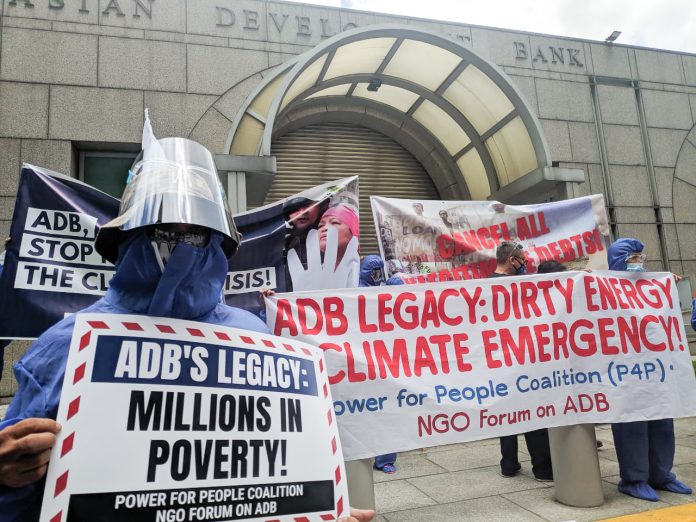Civil society and environmental activists across Asia criticized some provisions of the energy transition mechanism (ETM) proposed by the Asian Development Bank (ADB) for Indonesia and the Philippines.
The activists said the proposed mechanism undermines “just energy transition” in the region, adding that the ADB “seems eager to bail out coal developers and their financiers, using resources that include public funds.”
In a joint statement, the groups called out the ADB for allowing coal plants operate to 15 years to operate under the proposed mechanism.
They also cited the lack of guarantee for renewable energy development to benefit from the retirement of coal plants.
Gerry Arances, executive director of the Center for Energy, Ecology, and Development, said ADB did not conduct enough consultations with civil society representatives over issues such as whether electricity users will bear the costs of bailing out coal plant operators.
“ADB and its partners need to pursue a massive push for renewable energy and a 1.5°C-aligned plan to phase out coal and other fossil fuels,” said Arances in a statement.
He said that without addressing these concerns in the context of climate justice, the banks “risks making Filipinos and fellow climate-vulnerable peoples terribly lose the climate fight.”
ADB officially launched its partnership with the Philippines and Indonesia at the COP26 summit in Glasgow this week to phase out coal plants in Southeast Asia.
The bank proposed the implementation of the ETM in the two countries that are considered among the top 10 coal “expansionists” in the world.
The Philippines, which is one of the most vulnerable to the climate crisis, currently sources 57 percent of its power generation from coal.
“ETM can usher in a transformation in the battle against climate change in Asia and the Pacific,” said Masatsugu Asakawa, ADB president in a statement.
The mechanism will consist of two multibillion-dollar funds, each aiming for the early retirement or repurposing of coal plants and generating new cleaner energy investments.
ADB plans to work with the governments of both countries to secure capital from multilateral banks and private investors to enable the project.
“Indonesia and the Philippines have the potential to be pioneers in the process of removing coal from our region’s energy mix, making a substantial contribution to the reduction of global greenhouse gas emissions, and shifting their economies to a low-carbon growth path,” said Asakawa.
A full implementation of the ETM in Indonesia, the Philippines, and possibly Vietnam, would result in cutting the coal fleet by 50 percent for the next 10 to 15 years. This will lead to reducing up to 200 million tons of carbon dioxide per year, which is the same pollution emitted by 61 million cars.
“A clean energy transition in the Philippines will create jobs, promote national growth, and lower global emissions,” said Carlos Dominguez, Philippine Finance Secretary and chairperson-designate of the Climate Change Commission.
“ETM has the potential to accelerate the retirement of coal plants by at least 10 to 15 years on average,” he said.
Dominguez heads the Philippine delegation to COP26 in Glasgow, United Kingdom.
At the two-week summit, leaders from governments, businesses, and civil societies convene to develop solutions to address the climate crisis, amid rising greenhouse gas emissions. – with a report from John Leo Algo of Oeconomedia









